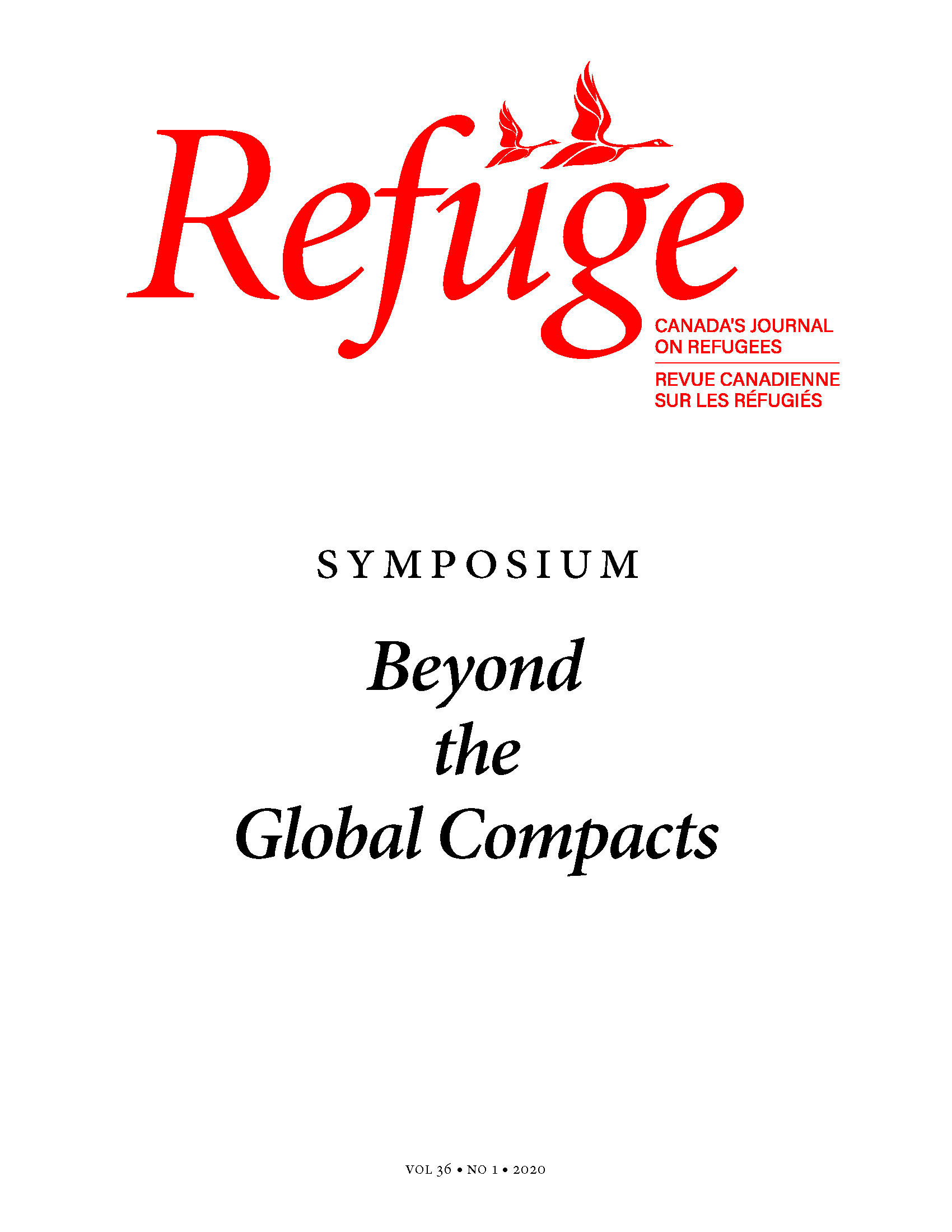Seeking Status, Forging Refuge: U.S. War Resister Migrations to Canada
DOI:
https://doi.org/10.25071/1920-7336.40648Keywords:
U.S. war resisters, Canada, U.S. emigration, Vietnam War, Iraq War, safe havens, social movementsAbstract
Often people migrate through interstitial zones and categories between state territories, policies, or designations like “immigrant” or “refugee.” Where there is no formal protection or legal status, people seek, forge, and find safe haven in other ways, by other means, and by necessity. In this article, I argue that U.S. war resisters to Canada forged safe haven through broadly based social movements. I develop this argument through examination of U.S. war-resister histories, focusing on two generations: U.S. citizens who came during the U.S.-led wars in Vietnam and, more recently, Afghanistan and Iraq. Resisters and activists forged refuge through alternative paths to protection, including the creation of shelter, the pursuit of time-space trajectories that carried people away from war and militarism, the formation of social movements across the Canada-U.S. border, and legal challenges to state policies and practices.
Metrics
Downloads
Published
How to Cite
Issue
Section
License
Copyright (c) 2020 Alison Mountz

This work is licensed under a Creative Commons Attribution-NonCommercial 4.0 International License.
Refuge authors retain the copyright over their work, and license it to the general public under the Creative Commons Attribution-Non Commercial License International (CC BY-NC 4.0). This license allows for non-commercial use, reproduction and adaption of the material in any medium or format, with proper attribution. For general information on Creative Commons licences, visit the Creative Commons site. For the CC BY-NC 4.0 license, review the human readable summary.







